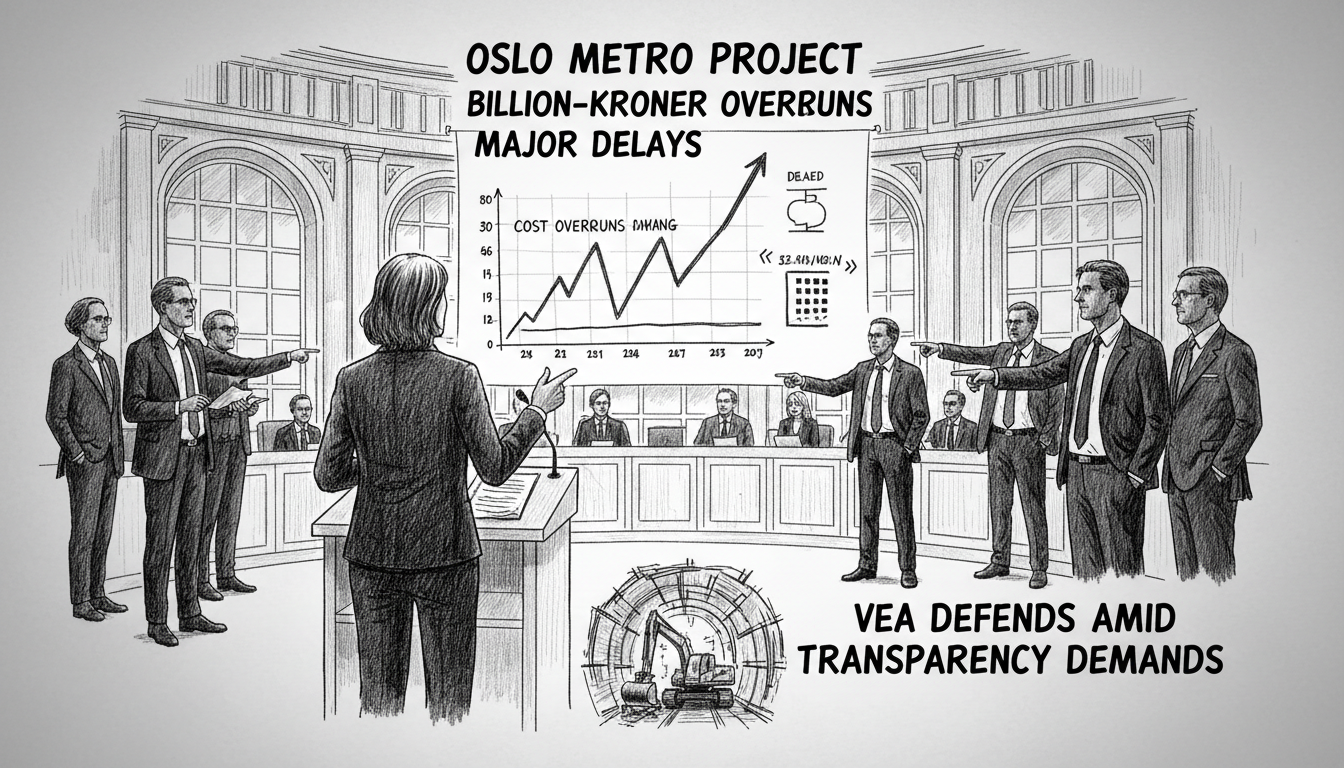The Fornebu metro line connecting Majorstuen to Fornebu has exceeded its budget by over one billion kroner and faces significant construction delays. Transport Commissioner Marit Vea faced intense questioning in Oslo's city council about the mounting problems plaguing this critical infrastructure project. Opposition politicians demand full transparency about the true costs and timeline implications for Oslo's transportation network.
Project costs have skyrocketed from an initial 16.2 billion kroner to approximately 29 billion kroner in current estimates. The timeline has also slipped substantially, with the entire line no longer expected to open as originally scheduled. Officials now consider opening the line to Fornebuporten station first, then completing the remaining two stations later. The final completion date remains uncertain, creating uncertainty for commuters and businesses in the Bærum area.
Political controversy erupted when Commissioner Vea attended a meeting with Fornebu line directors just days before announcing the delays. During that meeting, participants discussed how both budget and progress remained within established parameters. Opposition leader Sirin Stav questioned how the situation could deteriorate so dramatically within one week. She asked why the commissioner didn't share information that her department already knew about potential delays.
Abdullah Alsabeehg, deputy committee leader, demanded complete transparency about the true cost framework and delay duration. He noted the irony that Commissioner Vea had previously criticized the former red-green city government for lacking project control. Now she faces similar criticism after taking responsibility for the project herself. The political stakes are high for Oslo's governing coalition.
The Fornebu line represents one of Oslo's largest current infrastructure investments. It will connect Majorstuen to the developing Fornebu area with an estimated travel time of twelve minutes. The project's escalating costs and delays raise questions about large-scale infrastructure management in Norway's capital region. Similar cost overruns have affected other major Norwegian projects recently, suggesting systemic challenges in public works planning.
Commissioner Vea defended her handling of the situation, stating she lacked basis to share information about increased costs earlier. The decision to cancel a crucial contract came only after thorough evaluation, she explained. Project director Irene Måsøval confirmed that contract cancellation will delay the line by at least seven months. She emphasized the distinction between risk assessment and actual deviation in project management.
What does this mean for Oslo residents? Commuters face extended waiting times for improved public transportation connections. Taxpayers bear the burden of escalating project costs. The situation highlights the complex challenges of urban infrastructure development in growing Scandinavian cities. Similar metro expansions in Stockholm and Copenhagen have faced comparable budgeting and timeline difficulties.
The political fallout continues as opposition parties call for greater oversight. The project's management must now demonstrate they can deliver remaining construction phases within revised parameters. Oslo's transportation future depends on resolving these implementation challenges effectively.

